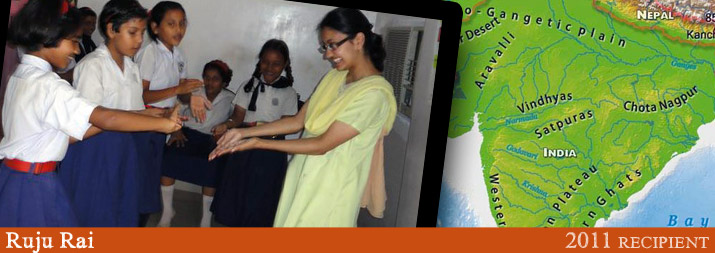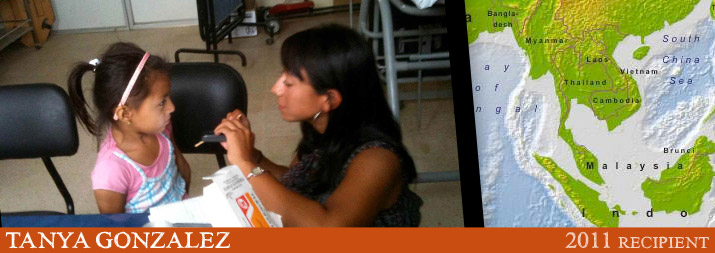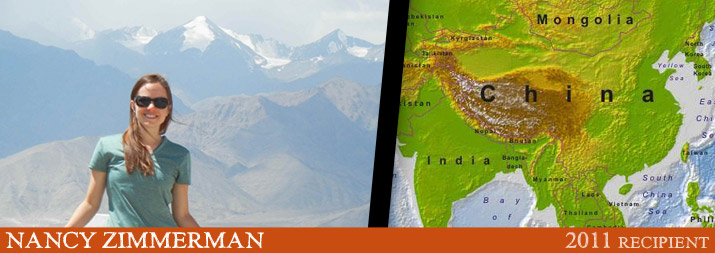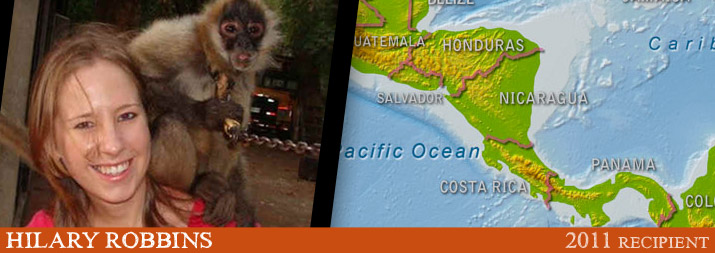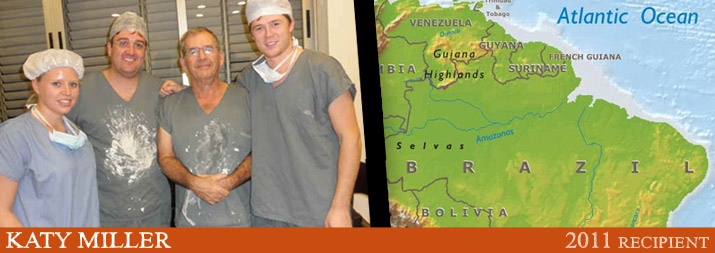
Robin Baudreau is a graduate of the University of Massachusetts/Amherst in journalism and political science. Robin traveled to Ghana in the fall of 2011 where she worked with the program ACT (Alliance for Community Transformation) helping to build an orphanage and teaching in a small school. Robin received a $1000 scholarship from Sara’s Wish Foundation.
Here are Robin’s travel safety tips:
No matter how prepared you may be before you leave, you’ll never be completely prepared. Let me explain this in simpler terms: be adaptable. Comparing Ghana to the United States is like comparing apples to… avocados. The only similarity is the seed in the middle. The common ground in communicating to people in such a different situation than ours is that we’re all people. If you start with that, you’ll have no problem. Customs are different; traditions may be stronger and more significant. You should learn them, because something of no disrespect to you may be the complete opposite to them.
Know the currency. Know the exchange rate. Know how much things are supposed to cost and how much you’re actually paying. Despite the majority of good people you’ll come across in your travels, there will be the handful of people that will try to cheat you.
Believe in the good in people. Traveling far away from home can be scary, and especially if you’re traveling alone you need to be aware of your surroundings and keep a watchful eye. But don’t be afraid to believe in the general kindness of people either. Ghana was a place of people helping people, and if you join in on that mentality it will get you a lot farther than your skepticism will.
Know the language. In Ghana the regional language where I was was Ewe, and the first day we got there we bought a tiny notebook at the market and began writing down everything we thought would be helpful to know. It’s important to know what you’re saying when traveling around and especially buying things. It’s also nice when you want to talk to the locals, they love teaching you their language and especially love when you speak it with them. It will just generally make things easier for you.
Go without expectations. This goes back to the first point that I made. I thought I was traveling to Ghana to build something with my hands, but instead I ended up teaching various subjects in a very small, very rural school. I really didn’t want to teach at all, but the joy the children get from having someone new and exciting teach them every day was well worth the inconvenience to me. Plus, either way I was making a difference in some sense.
Always keep a form of identification on you, but don’t necessarily make it your passport. I kept my license and my travel abroad medical insurance card on me ( another thing you should consider getting.) I made sure I always had cash in their currency, as well as an emergency debit card on hand. I kept my passport in a safe place with the rest of my belongings as well as my credit cards and regular debit cards. Make copies of your passport and keep the copies in a separate place than your actual passport. You also want to notify your bank that you’ll be out of the country to avoid them shutting off your bank account. It also may seem silly, but check what type of banks or ATMs are available where you’re going. I couldn’t use my Mastercard in many places in Ghana, and you want to make sure you always have your funds readily available.
Get used to being different. In Ewe, a white person is called a “yevu” (spelling questionable,) and it was yelled at me everywhere I went. I was touched, and poked, and prodded because my skin was white. It was an extremely interesting perspective to be a minority, and I think it’s something that everyone should go through. Don’t be afraid to explore that. It was probably one of my favorite parts of my experience in Ghana.
Don’t do anything that makes you feel like you’re in danger. There’s a distinction between putting yourself in an uncomfortable yet rewarding situation, and feeling like you shouldn’t be in a certain situation. Go with your gut, if something doesn’t feel right, it’s probably because it isn’t and don’t do it.
Learn your options for transportation. Road travel wasn’t necessarily the safest in Ghana, but there was really no other option for us. You just have to be careful and take precautions everywhere you go. If you don’t feel safe, say something, and get yourself out of wherever you are. Nothing is worth getting hurt.
Learn to live without your worldly possessions. For six weeks I had no cell phone, no computer, no running water, and sporadic electricity. I was chewed up by mosquitoes, dirty, and I loved it. You learn to live without these things, don’t let the lack of material things discourage you.
See everything you can see. Meet everyone you can meet. Taste, smell, and breathe everything in that you can. You’re going to miss home. You’re going to miss the convenience of American life, but you’re also going to miss your travels when they’re done so you have to soak up every opportunity that you can.
